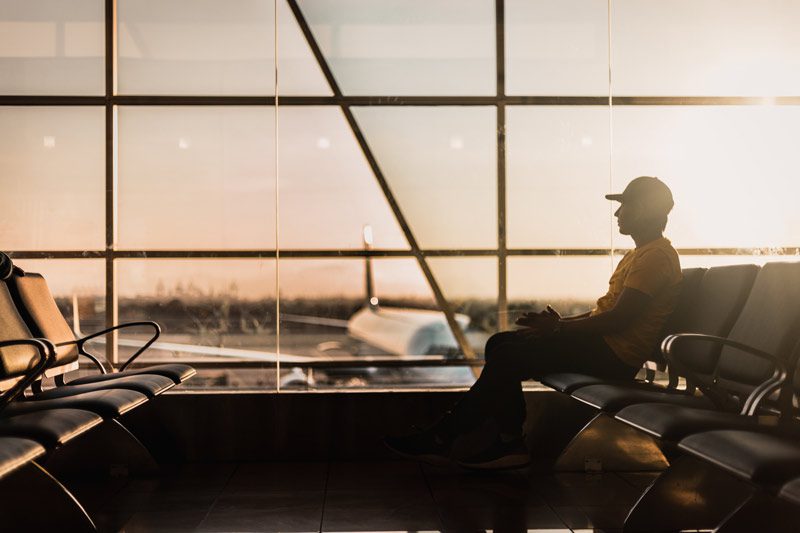No matter how mentally strong you are, deployment can be a stressful experience that takes its toll on you. It’s no surprise that many service members struggle to return from deployment. If you’re a veteran who has recently returned from operational deployment, you might find these tips helpful in readjusting to life as a civilian.
Stay on Top of Your Finances
While overseas, personal finances may have been the last thing on your mind. One mistake many veterans make is assuming their financial situation is no longer important after deployment. It can be easy to get behind on bills, especially when you’re dealing with stress and anxiety or are not used to handling certain expenses. You can stay on top of your finances and use your savings wisely by talking with a financial advisor. An advisor can help you manage your money and create a plan for how you can spend it. You can get advice on how to reestablish your credit, obtain a VA loan, and so on. Once your personal finances are in order, it should be easier for you to adjust to civilian life.
Take Time to Decompress
One of the most important steps to take when reintegrating yourself after deployment is to take some time to decompress. While the duration of this process will depend on the individual, it’s recommended that you take at least a month off after returning home. The main goal here is to give yourself time to come to terms with what you’ve been through. It’s also a chance to work through any mental and emotional issues that have arisen as a result of your deployment. Even if you feel you’re ready to jump back into life as a civilian, it’s essential to give yourself time to come to terms with what you’ve been through.
Get Emotional Support
If you’re struggling with any mental health issues after deployment, then you need emotional support. For one, a counselor can help you process the events of your deployment and work through the emotions you’re experiencing. Joining a support group for veterans is another great way to get help and support when you return from deployment. Support groups are great because they’re made up of other veterans who understand what you’ve been through.
Go on an Adventure Trip
Another good way to get back into civilian life is to do something adventurous. You can go on a trip that takes you to a new, exotic location or do something closer to home that still challenges you and helps you grow as a person. If you’ve been stationed in the same place for years, you may have trouble readjusting to civilian life. You’ll be used to the military lifestyle and may find that you don’t fit in well with your old friends and acquaintances. You might also feel uncomfortable staying in one area after being on the move for so long. By taking an adventure trip, you can go somewhere new, meet new people, and experience something different.
Keep a Journal
Another way to reacclimate after deployment is to write a journal. Journaling can be a very therapeutic experience that can help you come to terms with your experiences in the military. It can also be a great way to reflect on your time overseas. You can write about your feelings, challenges, and triumphs. You can look back on your journal later in life to see how you’ve come along in the years following your deployment.
It’s important to remember that reintegrating yourself after deployment won’t happen overnight. It may take a while before you feel like you’re fully back to your usual self. Be patient with yourself, and don’t rush the process. By following these tips, you can make your transition back into civilian life a smooth one.
If you or someone you know experiences mental health issues, it is important to seek help from a qualified professional. Our Resource Specialist can help you find expert mental health resources to recover in your community. Contact us now for more information on this free service to our users.
About the Author: Carol Evenson is a loving mother of three, an aspiring writer, and a social activist. She enjoys educating and learning and loves sharing her knowledge with her family and friends.
July is BIPOC Mental Health Month
Observed each July and formerly recognized as National Minority Mental Health Awareness Month, BIPOC Mental Health Month highlights the unique mental health challenges and needs of Black, Indigenous, and other People of Color (BIPOC). Please join us in recognizing the struggles of BIPOC and bringing awareness to the need for adequate, accessible, culturally relevant mental health treatment, care, and services.
www.rtor.org and its sponsor Laurel House are committed to the advancement of racial equity and social justice and to making mental health services available to all.
Photo by Marco López on Unsplash
The opinions and views expressed in any guest blog post do not necessarily reflect those of www.rtor.org or its sponsor, Laurel House, Inc. The author and www.rtor.org have no affiliations with any products or services mentioned in the article or linked to therein. Guest Authors may have affiliations to products mentioned or linked to in their author bios.





